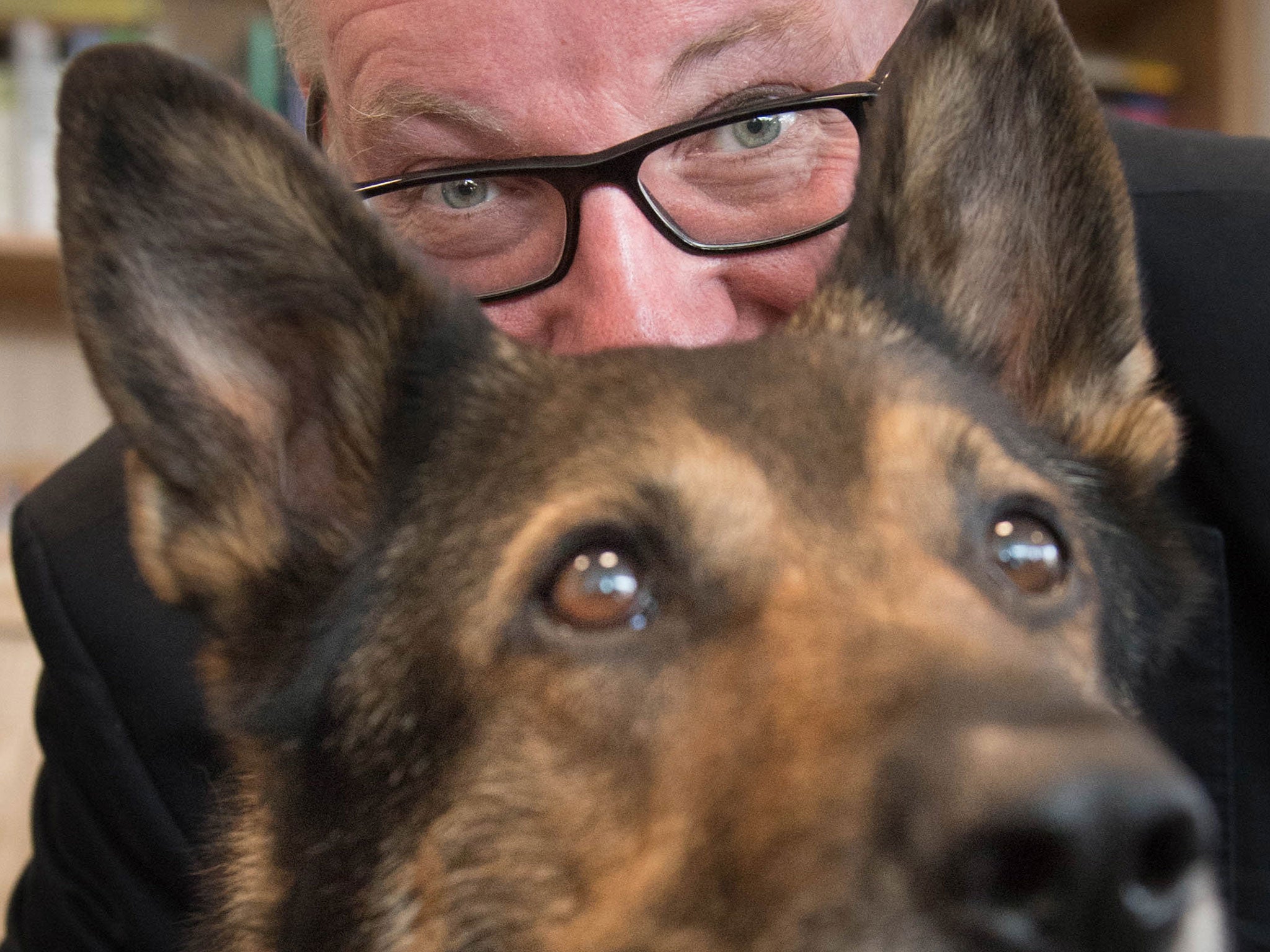Gove accused of making 'complete 180' over shock collars after research suggested little evidence for ban
Defra accused of implementing 'abrupt' policy change after earlier letters suggested department did not believe devices caused 'unnecessary suffering'

Your support helps us to tell the story
From reproductive rights to climate change to Big Tech, The Independent is on the ground when the story is developing. Whether it's investigating the financials of Elon Musk's pro-Trump PAC or producing our latest documentary, 'The A Word', which shines a light on the American women fighting for reproductive rights, we know how important it is to parse out the facts from the messaging.
At such a critical moment in US history, we need reporters on the ground. Your donation allows us to keep sending journalists to speak to both sides of the story.
The Independent is trusted by Americans across the entire political spectrum. And unlike many other quality news outlets, we choose not to lock Americans out of our reporting and analysis with paywalls. We believe quality journalism should be available to everyone, paid for by those who can afford it.
Your support makes all the difference.Michael Gove has been accused of making a “complete 180” turn over documents suggesting his department found little evidence for banning pet shock collars weeks before it announced plans to outlaw the devices.
The environment secretary said on Monday the government would prohibit the use of what he described as “punitive” collars, which “cause harm and suffering to our pets”, in England.
However, a letter seen by the Press Association sent from the Department for Environment, Food and Rural Affairs (Defra) back in February, said there was little research that supported a ban.
The document, sent to the Royal Veterinary College, noted scientific studies it had commissioned were “not strong enough to support a ban” on electronic training aids for dogs.
A similar conclusion was drawn by Defra minister George Eustice in a 2014 letter, in which he wrote the department “did not believe there was evidence that the use of such devices causes unnecessary suffering”.
Dog trainer and campaigner, Jamie Penrith, said Mr Gove had made an “abrupt” policy turnaround with no additional evidence.
“It’s a complete 180,” Mr Penrith added, claiming plans to ban the devices were not being advanced for welfare reasons.
Ian Gregory, a lobbyist for pet collars, said: “The secretary of state should desist from feeding the nation’s pets to the wolves of Twitter.
“The anecdotal problems reported with pet collars can be resolved by product standards rather than by banning a proven technology.
“The hundreds of thousands of dog owners using remote trainer do not deserve to be criminalised.”
Used as training aids for pets, the remote controlled collars can trigger electric shocks of varying degrees or spray animals with noxious chemicals.
Many animal charities have long campaigned for the devices to be banned, arguing they are needlessly cruel.
The Dogs Trust says such collars can release a shock of up to 6,000 volts into a dog’s neck for up to 11 seconds at a time.
Use of such equipment is already outlawed in Wales, while the Scottish government is also considering a ban.
Restrictions on remote controlled electronic training collars will not be extended to invisible fencing systems, which can keep pets away from roads and within a boundary without receiving a static pulse, the government announced.
“We are a nation of animal lovers and the use of punitive shock collars cause harm and suffering to our pets,” Mr Gove said.
“This ban will improve the welfare of animals and I urge pet owners to instead use positive reward training methods.”
Join our commenting forum
Join thought-provoking conversations, follow other Independent readers and see their replies
Comments